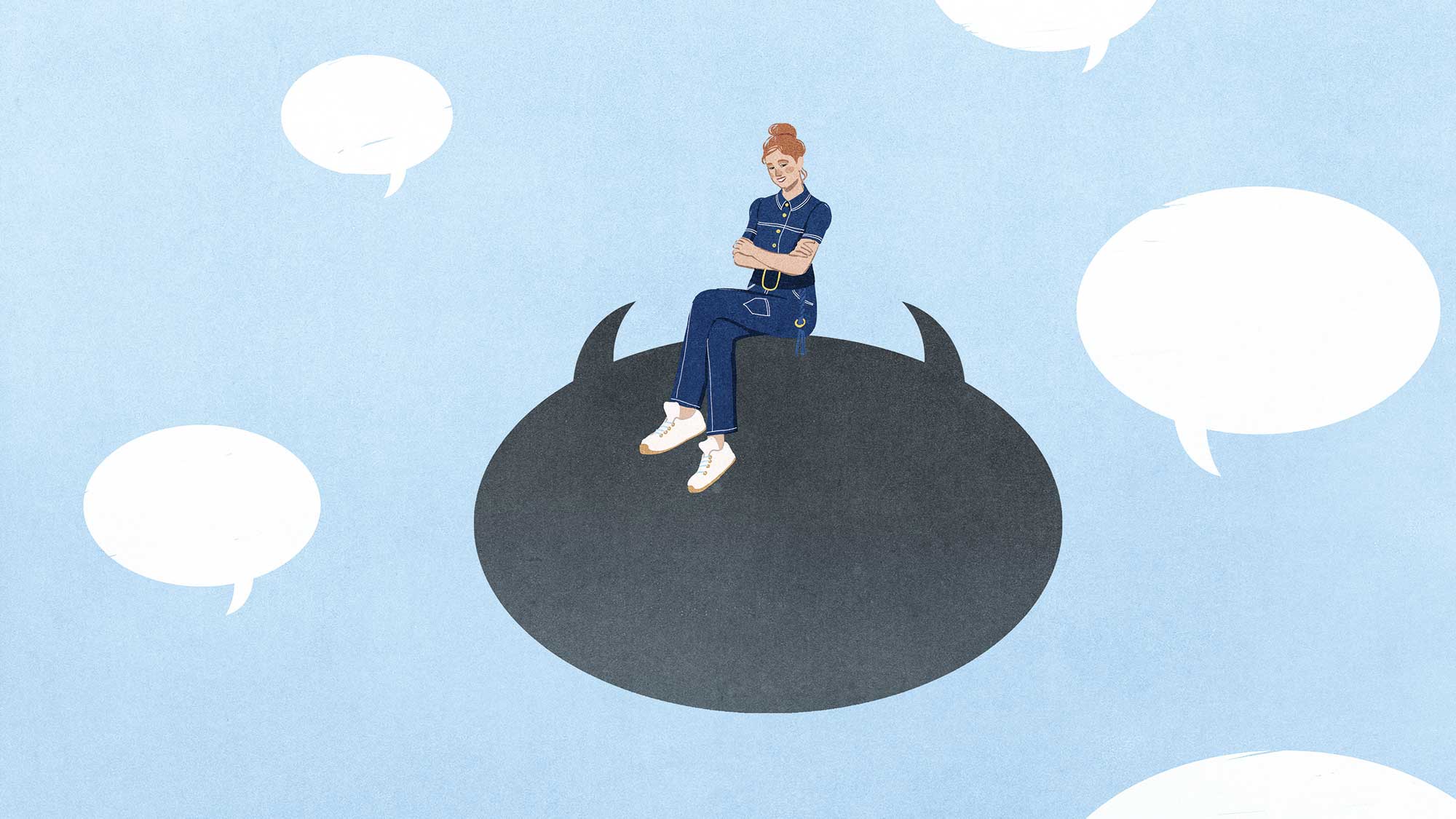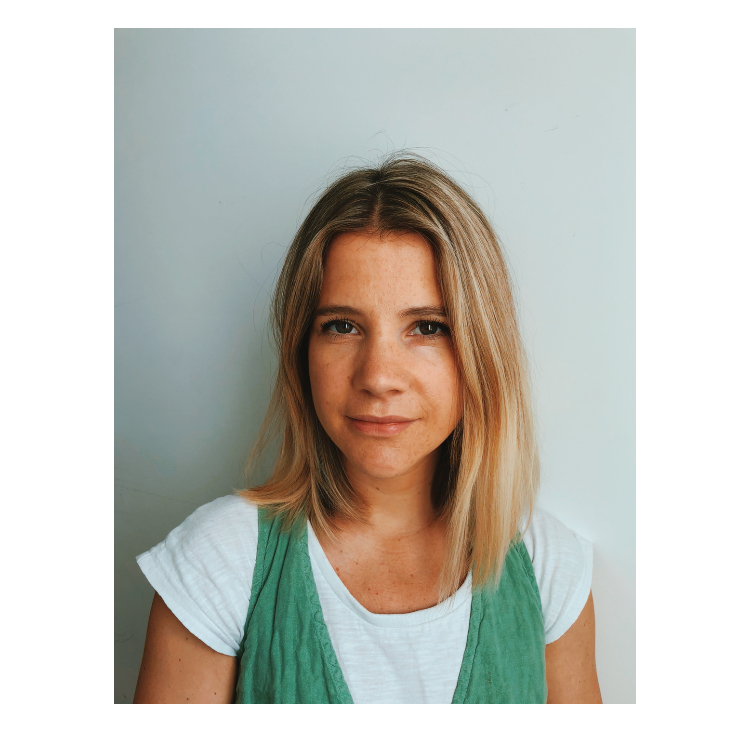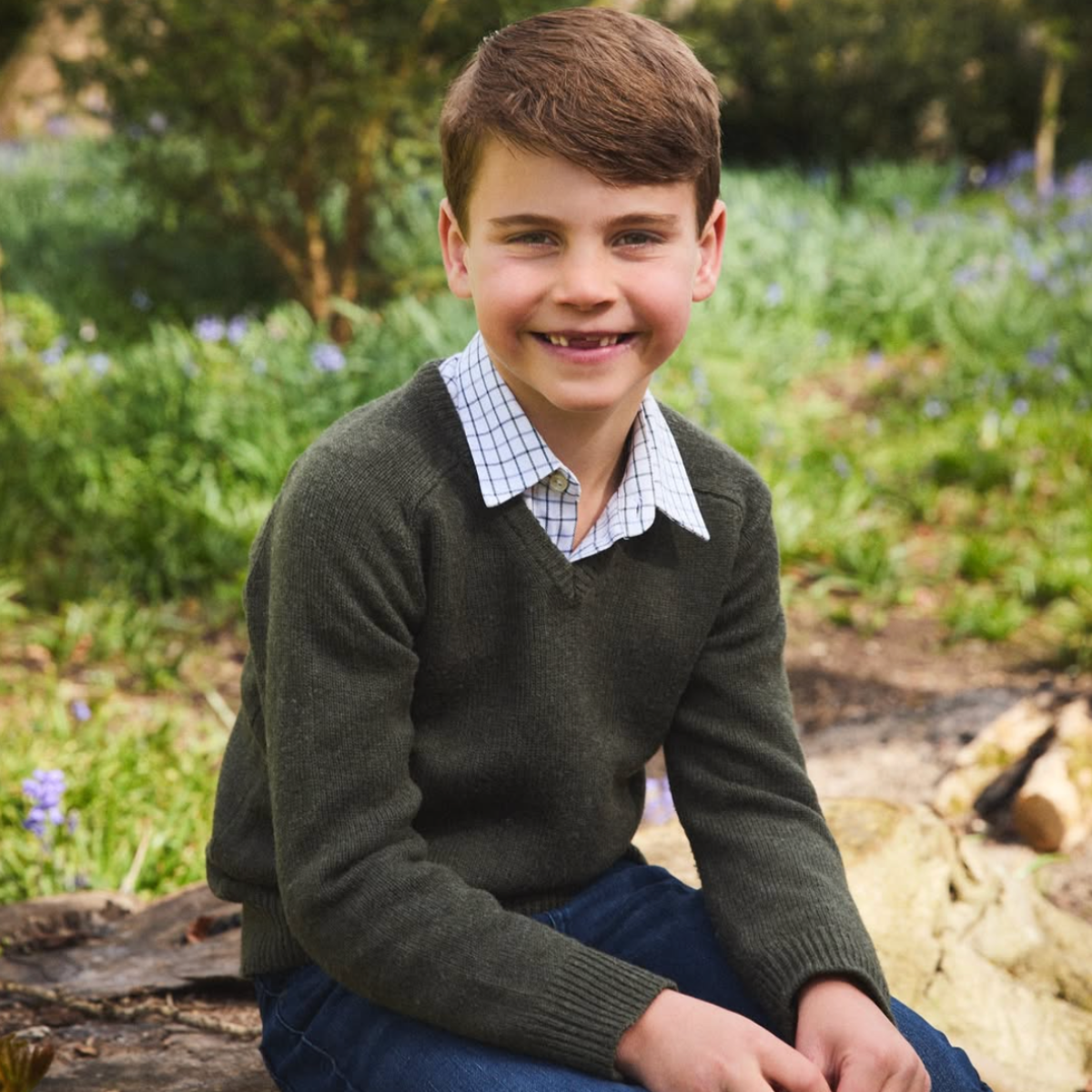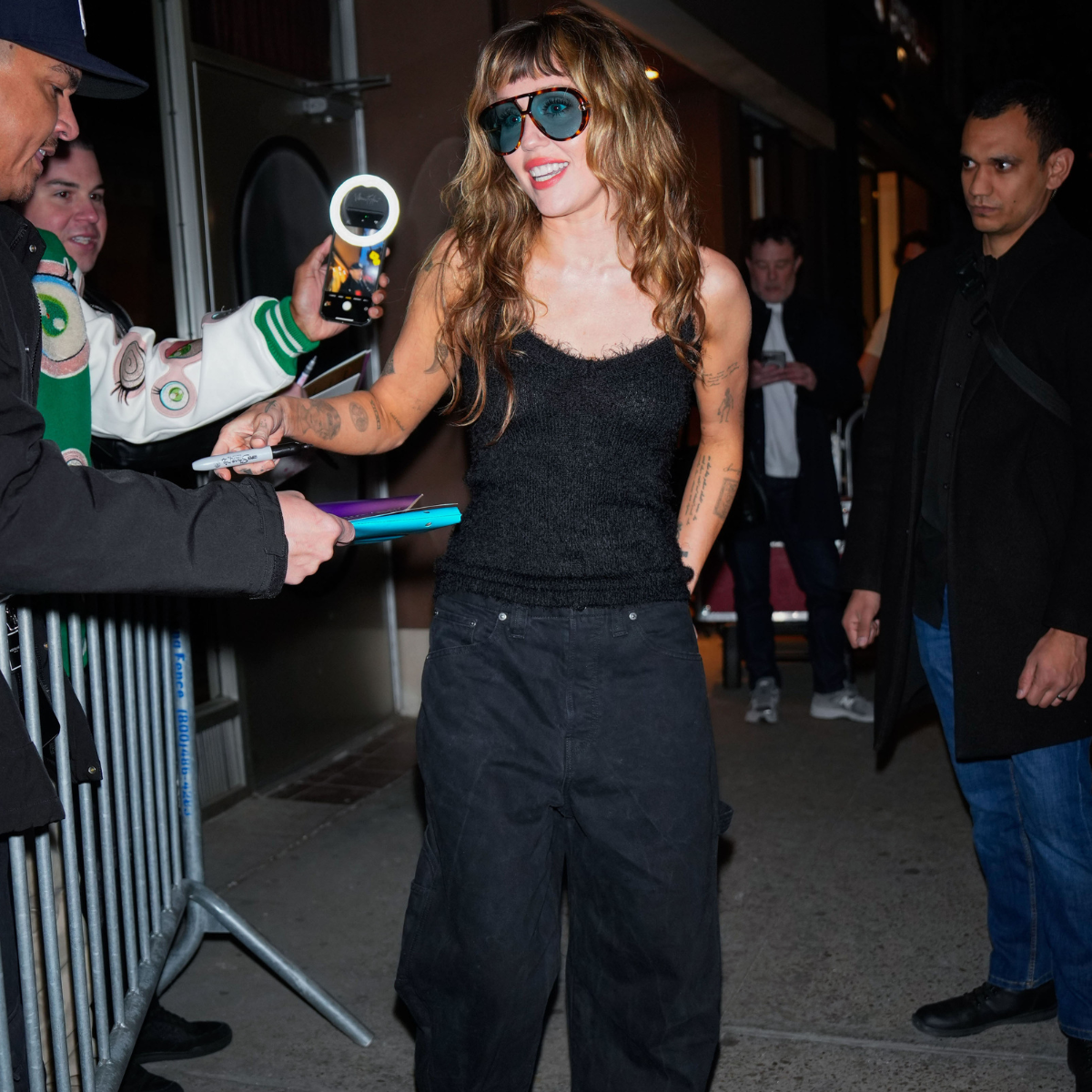This is how embracing our darkest thoughts can make us better people
Good people do – and think – bad things. But, rather than shying away from our darkest thoughts, a new movement is encouraging us to embrace them. Are you ready? Charlotte Philby reports


Good people do – and think – bad things. But, rather than shying away from our darkest thoughts, a new movement is encouraging us to embrace them. Are you ready? Charlotte Philby reports
What’s the worst thought you’ve ever had? Perhaps it was a desire to see someone you love fail, the anger you felt when a friend fell pregnant quickly while you struggled to conceive, or the jealousy you experienced when your sibling told you about achieving their career goals. Maybe it was darker than that – though whatever it was (and be honest now), chances are you won’t be keen to admit it.
For as long as slogan tees and upbeat wall hangings have existed, popular thinking has told us to embrace our better selves, to say nothing if we have nothing nice to say, to constantly project the best version of ourselves and bury the dark. We want to be defined by our most attractive attributes, not our most repellent. Yet a growing school of thought suggests we should be embracing, rather than shying away from, the full spectrum of our emotions.
This month sees the publication of a compelling new book Making Evil: The Science Behind Humanity’s Dark Side by Dr Julia Shaw, which seeks to help us understand the deviance that lies within ourselves and others. The author, an academic psychologist who works as an expert witness in criminal cases, argues that to some degree we all have a propensity to do, and think, ‘bad’ things, and that in ignoring this fundamental truth, we are doing ourselves a disservice.
‘We have a tendency to avoid thinking deeply about difficult topics, particularly our own moral shortcomings. This is partly because we like to think of ourselves as “good” people, and doing “bad” things threatens our self-image. But it’s important to think deeply about that which scares us about ourselves. If we don’t, we can’t possibly change for the better. If we all spent more time trying to understand our own dark side, the world would be a better and more empathetic place.’
Robert Biswas-Diener is an eminent US psychologist, widely known as the ‘Indiana Jones of positive psychology’. In his book The Upside Of Your Dark Side, co-authored by Todd Kashdan, he argues that mindfulness, kindness and positivity can only take us so far. Sometimes, they can even hold us back. Emotions such as anger, anxiety, guilt and selfishness might feel uncomfortable, but they are incredibly useful. For instance, anger can fuel creativity; guilt can spark self-improvement; selfishness increases courage. In the quest for self-improvement, the authors advocate an appreciation of ‘our entire psychological toolkit’.
'Low-level sadism makes it psychologically easier to survive'
‘I recommend that people let themselves off the hook for bouts of sadness, flashes of anger, or sharp lightning strikes of jealousy,’ adds Biswas-Diener. ‘It is a misconception that you are “bad” if you feel bad. As long as you aren’t acting out in ways that hurt others (or yourself) then occasional troubling emotions are nothing to be ashamed of. They are part of being human.’
Marie Claire Newsletter
Celebrity news, beauty, fashion advice, and fascinating features, delivered straight to your inbox!
Rachel, a 29-year-old digital creative from London, confides that she has learned to sit with her negative thoughts as a way to motivate herself in her job. ‘There is a woman at work who I always felt I was in competition with and I started to really resent her successes, even though she’s really nice. After trying to suppress those feelings, I realised I could harness them instead, and learn from her. By acknowledging how I was feeling about her, to myself, she lost a hold over me and now when I start to feel inferior around her, I use those feelings to propel myself forward, to make myself work harder and focus better.’
Dr Shaw sees schadenfreude − the enjoyment of others’ suffering or failure − as a normal kind of small-scale sadism. ‘Our brains are actually built for sadism, and schadenfreude is the by-product of this,’ she says. ‘Our ancestors had to be able to kill animals to eat them, and sometimes had to kill humans in war or other settings to survive. If we always felt terrible we would have been at a disadvantage. Low-level sadism makes it psychologically easier to do what is necessary to survive. That’s not to say sadism is morally a good thing, but it has a purpose.’ Interestingly, she adds, we tend to call men ‘competitive’ and women ‘jealous’ for effectively the same behaviour. Despite the gender stereotypes, humans are capable of the same things – good and bad.
With ‘authenticity’ now a key buzzword of our times, and low-level anger seeping into the national consciousness giving rise to headlines such as ‘The worst time ever to be alive?’ (It’s not: the bubonic plague of 536 AD beats even Brexit and Trump for low public morale) it has never been more acceptable to expose ourselves, warts and all; to be outwardly imperfect. A new swathe of books, from Ruth Whippman’s The Pursuit Of Happiness And Why It’s Making Us Anxious, to Christina Patterson’s The Art Of Not Falling Apart, mark a shift away from the idea that we should aim for perfection. However, it’s also true that the #RealTalk movement still tends to centre around self-doubt rather than the less palatable subject of unkindness towards others, with retailers jumping on the bandwagon with slogan-clad clothing such as ‘Be Kind’ (Topshop) and ‘Be Cool Be Kind’ (New Look).
But there is no escaping that sometimes thinking unkindly is part of the human experience. Sophie Hannah, author of How To Hold A Grudge, says, ‘Denying your darker emotions will lead only to more pain, conflict and stress in the long term. Holding grudges doesn’t have to fill us with hate or make us bitter. If you approach the practice in an enlightened way, you’ll find it does the opposite: it makes you more forgiving. Your grudges can help you to distil vital life lessons – about your value system, your hopes, needs and priorities – that will act as a series of stepping stones, pointing you in the right direction for the best possible future.’
How worried should you be about having dark thoughts?
Dr Julia Shaw explains our less noble desires...
Scenario 1: It’s Monday morning and pouring with rain. A commuter who pushed in front of you at the station slips over on the escalator. You feel delighted. ‘This kind of reaction just makes you human,’ says Dr Shaw. ‘Our brains are built for sadism and this reaction is almost primal. When we feel like someone has slighted or rejected us, it can feel like justice when negative things happen to them. What matters is what you do afterwards. Just make sure you don’t act on those feelings.’
Scenario 2: Your BFF announces she’s being promoted at work. You feel inexplicably furious. ‘Jealousy often comes from a comparative evaluation. Just because someone else is getting ahead it doesn’t mean you’re falling behind,’ says Dr Shaw. ‘Not seeing yourselves as rivals is the first step, as is dissecting what it is you’re jealous of (it usually stems from a place of insecurity). Aim instead to build up your self-esteem and put steps in place that will help you to achieve your own goals.’
Scenario 3: After a bad day, you find yourself venting to and about people on social media. You’re saying things you wouldn’t dream of in real life, but why? Dr Shaw reasons that this is because it’s easy for human beings to ‘dehumanise’ others they don’t know or are not related to, particularly on screen. She says, ‘Interacting with a two-dimensional image means we don’t have to deal with the emotional consequences of our actions.’ She advises caution. ‘Picture that person on your screen as a 3D human being before you type,’ she says. ‘And never write anything down you wouldn’t say to someone’s face.’
Scenario 4: A white lie you tell at work blows up. Someone innocent gets the blame, but you let them take the rap for fear of admitting it. ‘We all do bad things occasionally and it’s normal to cover up our deviant behaviour in an attempt to blend in,’ says Dr Shaw. ‘This only becomes dangerous when secret, destructive behaviour that hurts others becomes a regular pattern and spirals into more deception.’
-
 Why Prince William will attend the pope's funeral instead of King Charles
Why Prince William will attend the pope's funeral instead of King CharlesHe's representing his dad
By Iris Goldsztajn
-
 Royal fans can't believe this sweet detail from Prince Louis' birthday portrait
Royal fans can't believe this sweet detail from Prince Louis' birthday portraitAdorable
By Iris Goldsztajn
-
 Miley Cyrus just elevated the classic 'jeans and a nice top' outfit formula
Miley Cyrus just elevated the classic 'jeans and a nice top' outfit formulaPerfect for spring
By Sofia Piza